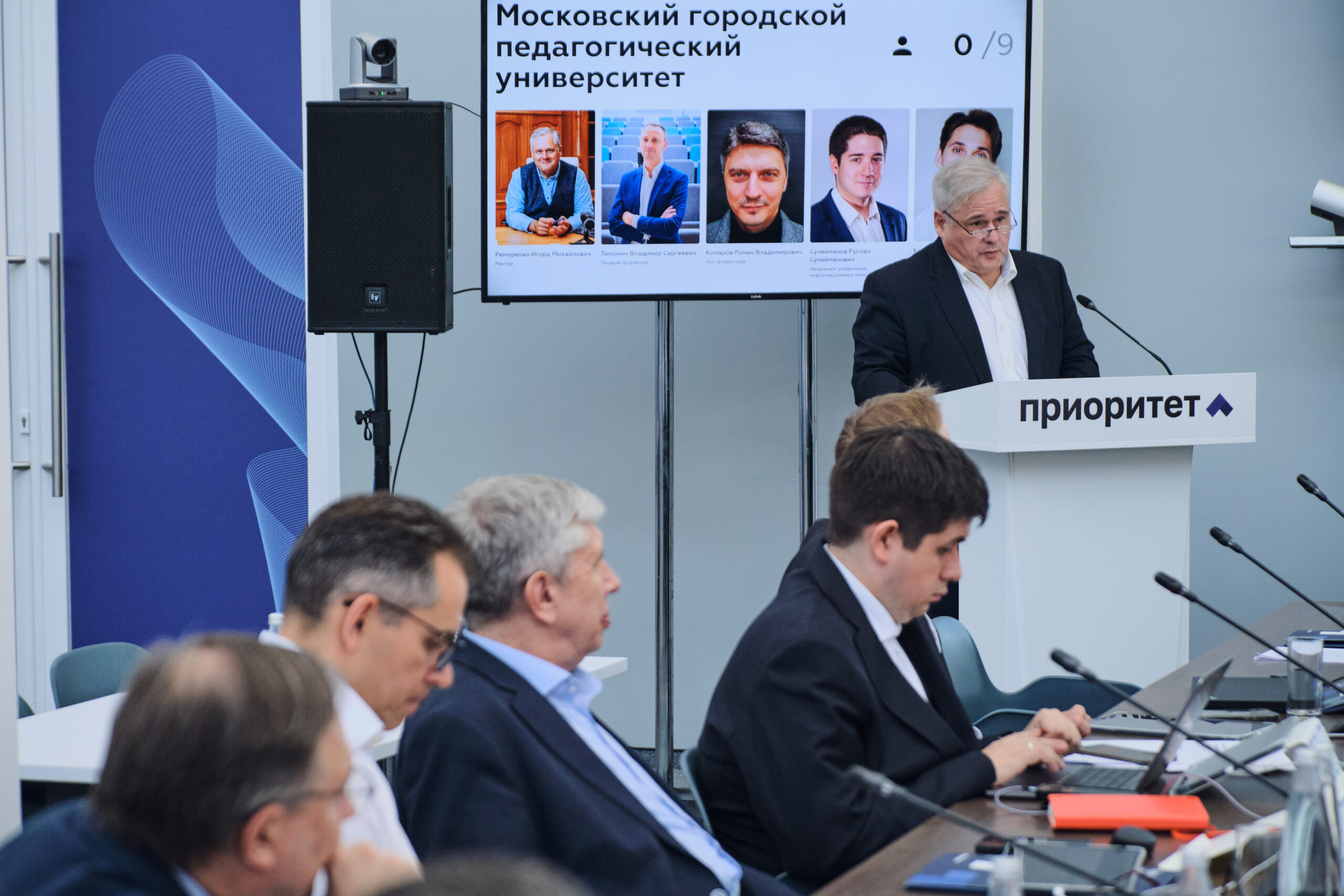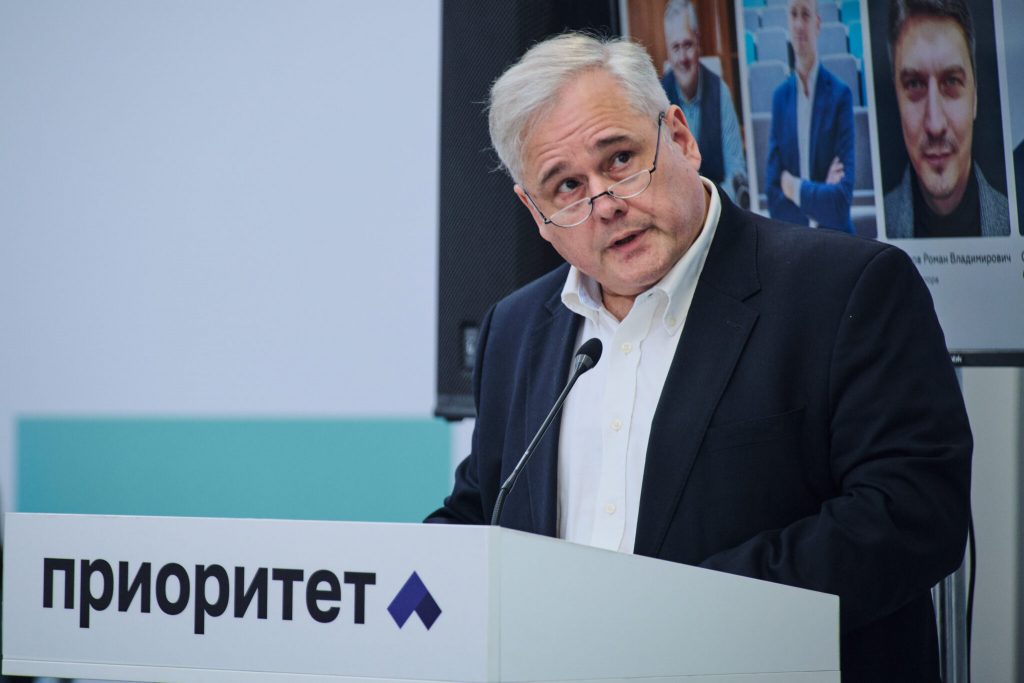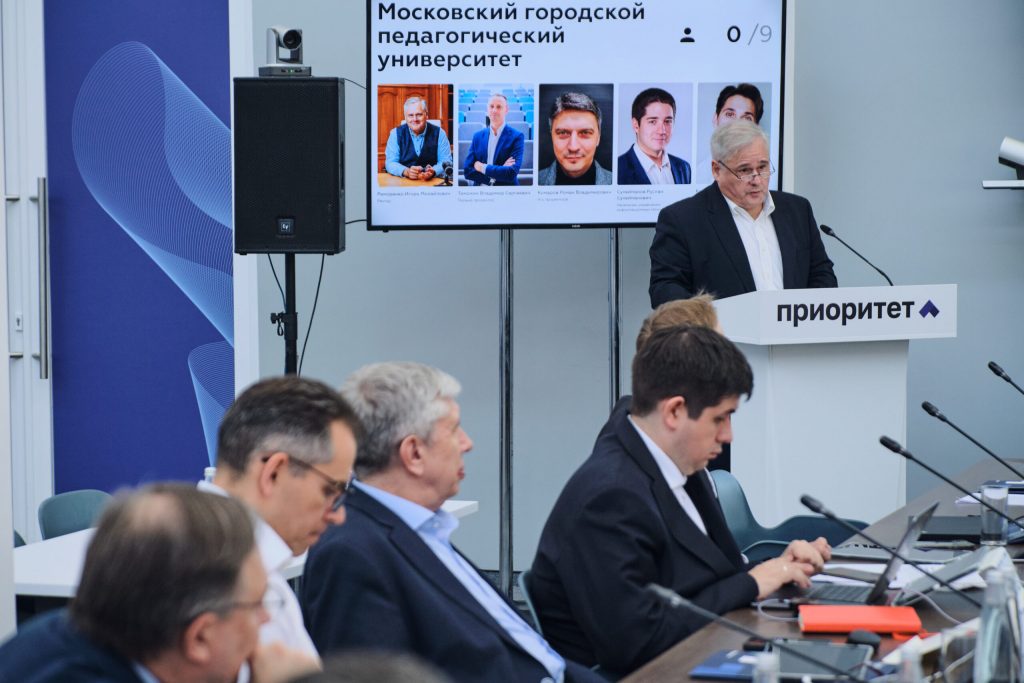From March 12 to 15, universities involved in the Priority 2030 program will present their 2024 achievements to the Board led by Valery Falkov, Minister of Science and Higher Education of the Russian Federation, while also showcasing their ambitions through strategic technological projects. The Council, consisting of members from the Russian Academy of Sciences, public organizations, and major industrial companies, makes decisions for all participating universities.
On March 13th, Moscow City University representatives presented their results to the Council. The presentation was attended by Vladislav Kozhemyakin and Irina Klykova from the partner company LLC “SberObrazovanie,” as well as Vladimir Timonin, the first vice-rector of RUT (MIIT).
Igor Remorenko, Rector of Moscow City University, stated:
The year 2024 was a pivotal one for Moscow City University. In collaboration with our industrial and technological partners, the founder, experts from the Sociocenter, and university teams, we worked extensively to reshape the development program, culminating in the new Priority 2030 course focused on technological leadership. We implemented significant institutional changes for key strategic projects and continued to explore the role of artificial intelligence in education, researching its use by teachers and students while developing our own digital products, such as the Digital Mirror of the Classroom service. Moreover, we identified educational AI technologies as our strategic priority, which will guide our development strategy for the next decade. At the same time, we have remained committed to another important area—advancing the didactics of modern education
Vladislav Kozhemyakin, CEO of SberObrazovanie LLC, added:
Our partnership with Moscow City University has become a prime example of successfully integrating technology into education. The Teacher Assistant development team and our colleagues at MCU worked simultaneously on developing AI services for lesson evaluation, each taking a different approach. We concentrated on analyzing teachers’ activities through audio recordings of lessons, while MCU focused on creating a solution for recognizing emotions and assessing student engagement through video recordings. To achieve a synergistic effect by combining our technologies with those of MCU, we are developing a service called the “Digital Mirror of the Classroom,” which provides a polymetric report at the end of each lesson, analyzing over 15 metrics. This analysis will help future teachers identify their strengths and weaknesses and receive recommendations for further development. For SberObrazovanie, the methodological expertise of MCU and access to teaching practices are crucial. In the long term, we see opportunities for expanding our collaboration, including the creation of new educational solutions. Our partnership will serve as a model of successful cooperation between business and education to improve the quality of education in Russia.
Key achievements presented by the university:
As part of its technological leadership course, Moscow City University (MCU) focused on developing educational products and services powered by AI technologies.
The flagship project, “Digital Mirror of the Classroom,” is an industry-first tool for providing qualitative feedback to future teachers. Using a range of metrics (methodological, psychological, social), the service analyzes video and audio recordings of model lessons conducted by students with the help of artificial intelligence. The analysis results enable students to reflect independently or with a methodologist on the effectiveness of the session and create a personalized plan for competency development. The dataset for training the neural network currently includes over 12,500 training sessions, with around 700 students involved in testing the technology last year.
In response to the global growth of AI in education, in 2024, MCU researchers published over 120 articles on AI-related topics, and the University developed two AI assistants: Vygotsky’s Aspirant and Ushinsky’s Postgraduate Assistant. These projects laid the foundation for a new product – an AI platform for creating virtual agents. This platform allows users (teachers, students, researchers) to create AI personas for use in educational settings. MCU plans to expand this product as part of its strategic technology project.
In 2024, the university also expanded its range of simulators designed to assess and develop the universal and general professional competencies of key educational participants. Over 5,000 people from 137 educational organizations across 5 Russian regions worked with the simulators.
A significant portion of MCU’s changes in 2024 involved institutional adjustments to align with the updated development program, emphasizing technological leadership. This includes the creation of a learning adaptability and educational analytics lab in partnership with the “Prosveshchenie” publishing house, the opening of the Russian-Chinese Center for Artificial Intelligence in Education with the Central China Normal University (Wuhan), and the establishment of centers for the didactics of professional education and engineering didactics, in collaboration with RUT (MIIT).
The Rector of Moscow City University also outlined the university’s future focus.
Photo: Priority-2030 press service



